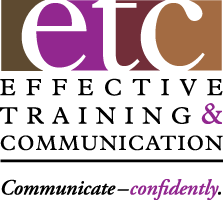How often does a customer call, text or email you with a question? If you said ‘rarely’, then you’re either very good or very lucky. Stop reading now and go do something fun in stead. If you said ‘often’ or ‘a lot’, then read on – this one’s for you.
How important are customer questions?
Our operational assumption is that effective, efficient and engaging customer communication is essential for any business to survive, let alone thrive. That said, responding to customer questions quickly, clearly and courteously is a critically important aspect of customer communication strategy.
Customers rarely have the technical knowledge to assess how good your product or service is. That’s why they need you. But they can quickly judge your company’s values by what you do and say in responding to questions.
When do you get questions from customers?
Short answer – any time and all the time. They’ll have questions the first time they visit your location, search your site or call in. They’ll also have questions throughout the shopping and sales process and long after they’ve bought your product or service.
So, you and your customer-facing staff need to always be ready to respond to questions consistent with your company’s strategy and plan. If you don’t have a strategy and plan for questions because you thought it was obvious – wrong answer. Always have a plan.
What should we say?
Initially, nothing. Listen intently to their comment or question. This is especially important with face-to-face communication – look like you’re listening. Verify your understanding by saying something like -‘Let me make sure I’m understanding …’ or ‘You’re asking/saying … ‘ Then, answer/respond clearly and concisely. Don’t say ‘Did I answer your question?’ Because that implies that you might not have. Simply say ‘ Any more questions/anything else I can help you with?’
What if we don’t know/can’t respond immediately?
Say so, but indicate when you think you’ll have an answer or response. Ask if they would rather say on hold/stay in the store or have you call them. Do what they ask. Respond sooner than you said you would. If the right answer is ‘I don’t know’, consider saying ‘I’m not sure’ or ‘I don’t remember’ instead. Better for your credibility.
Should we have an ‘FAQ’ page on our website?
Absolutely. Make sure it’s easy to find, clear and comprehensive. When someone calls, ask if they’ve visited the site first. A subtle way to remind them for next time.
But, such a page is static – it sits there waiting for someone to read it. Consider including all of it or parts in regular customer communication. If they already know the answer, no problem. If not, they might appreciate the gesture. If you have a customer blog or eLetter, have a regular FAQ section in it. And once is never enough. Keep repeating the important questions. Few people will notice and no one will mind.
How do we know which questions are important?
Assume they are all equal, but some questions are more equal than others, (With homage to George Orwell.) Keep track of questions manually if you have to or by hit frequency on your site. Usually the questions asked the most often are the most important or at least impact the most customers.
So, make the most of FAQs for your customers and your value proposition. Turn every ‘frequency asked question’ into a ‘frequently answered question.’ And do send in your questions about questions so we can respond next month. Any questions?
(Note – this piece first appeared in the COSE ‘Mind Your Business’ e-Letter last month as part of my role as a resident expert content contributor.)
